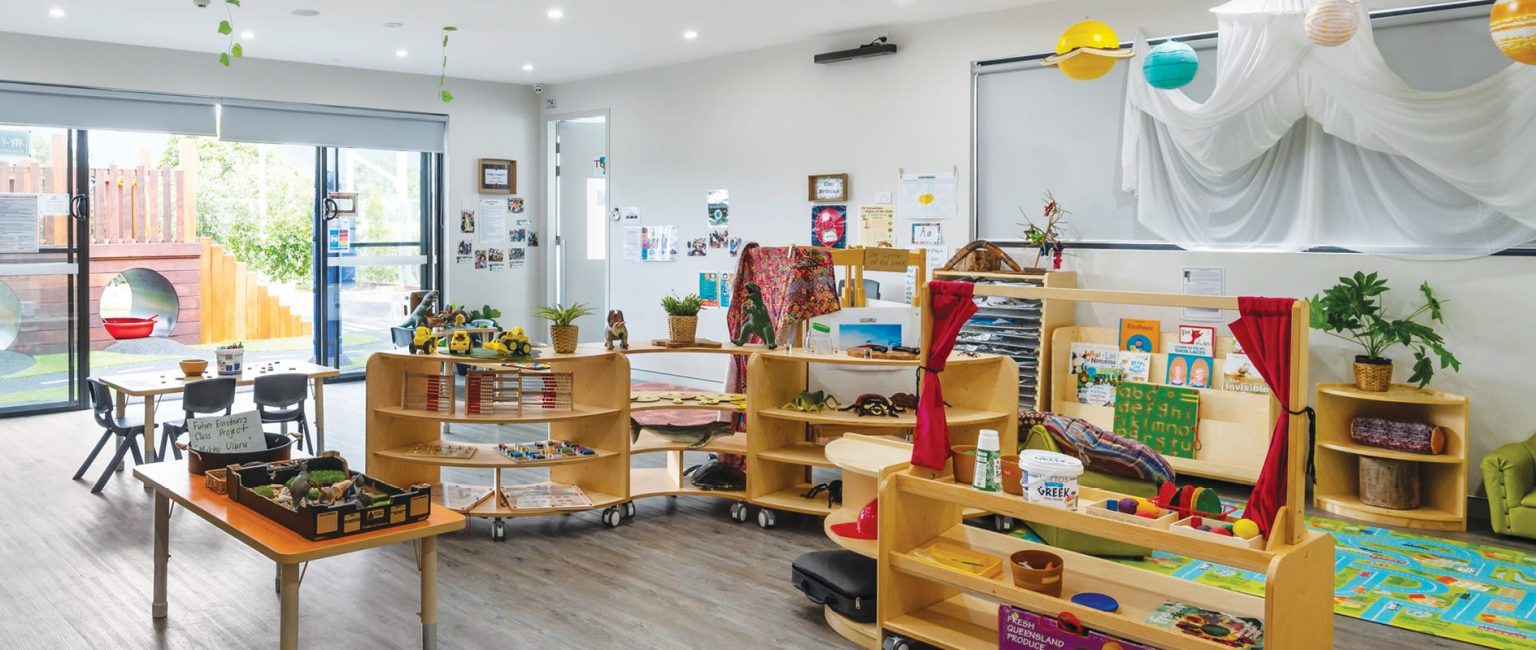‘This has been the hardest year’: Testing times continue for childcare sector

Australia’s childcare sector is struggling with the latest Covid wave as increasing numbers of childcare providers require special federal government waivers to operate.
However, help is on the way with the federal treasurer on Thursday announcing in his economic update to parliament that the government would prioritise childcare spending in its October budget by supporting “decent wages” across the care sector.
The announcement comes as new data from the Australian Children’s Education and Care Quality Authority reveals 8.1% of childcare centres required special waivers to operate in the first quarter of 2022 after failing to attract qualified staff.
The figure compares to just 3.9% in 2019.
Early childhood education minister Anne Aly said urgent action was needed to help childcare centres retain staff amid testing times.
“We have a shortage of early childhood education and care workers now and know that this is expected to get bigger without urgent action,” she said.
“The government is acting to increase supply of the early childhood workforce through our commitments for fee free TAFE, extra university places, closing the gender pay gap and improved
workforce planning through the establishment of Jobs and Skills Australia.
“I will also be holding a number of roundtables with early childhood education and care worker stakeholders in the lead up to the jobs and skills summit to discuss workforce issues.
“Keeping children enrolled in early learning and care during the pandemic has been important for our kids, for childcare centres, and the economy.”
Childcare workers to strike over pay and working conditions
Excessive workload, low pay and feeling undervalued has created a perfect storm for Australia’s childcare industry, one which has only been exacerbated by Covid.
A national strike action on 7 September , coordinated by the United Workers Union, is now hoping to bring these issues to the forefront by demanding the federal government provide
funding boosts for early learning educators who still rank among Australia’s lowest income earners.
A Certificate 3 qualified educator currently receives $24.75 per hour – only $3.37 more than the minimum wage.

Some centres are strongly encouraging staff to wear masks in an effort to halt the spread of both Covid and influenza. Picture: Getty
The Union’s director of early learning Helen Gibbons said government inaction had left early educators overlooked, underpaid and burnt out.
“Every week qualified [early] educators who are passionate about early learning are being forced to leave the sector to find a job they can afford to live on,” she said.
“The high turnover in the sector in turn puts more pressure on the educators that remain, as centres struggle to fill vacancies.
“It’s a vicious cycle that isn’t sustainable for educators, children or families.”
A spokeswoman for G8 Education, one of the country’s largest childcare providers, said the company had not been immune to sector-wide staff shortages, particularly during the Covid pandemic.
“This can make it difficult to welcome new families to some centres as the recruitment of quality [early] educators can take longer,” she said.
How childcare centres are responding to challenges
Early Learning Association director of advocacy and members solution Megan O’Connnell said childcare centres had faced many testing times since the start of the pandemic but none more so than this year.
“Our services are saying that this has been the hardest year that they’ve had because this year we not only have Covid but influenza to deal with,” she said.
“So you will find that you have staff away because they have Covid but you will also have people away for two or three weeks that have influenza.
“We also haven’t had migration for a number of years, so we don’t have access to a pool of casual aid teachers to help out, which means other staff have to take on extra shifts … and people are exhausted having done that for several years now.”
Ms O’Connell said ventilation and air purification remained critical across centres during an epidemic-like winter season to keep staff and children safe.
Many childcare providers, including G8 Education and Goodstart Early Learning, are also again recommending the use of masks while indoors.
“We’re creating environments that have ventilation and we’re working with educators on developing plans that allow for children to be taught outdoors, even in the cold,” Ms O’Connell said.
“In Victoria, we now also have new mask mandates which strongly encourage educators and staff to wear masks, unless they are directly communicating with children.
“So lots is being done to keep the workforce safe but of course there is so much more you can do as a preventative measure.
“One of the things that would be fantastic is something like what has happened in the health sector, by way of a retention payment to show workers they are valued and that we want to keep them in the job.”







